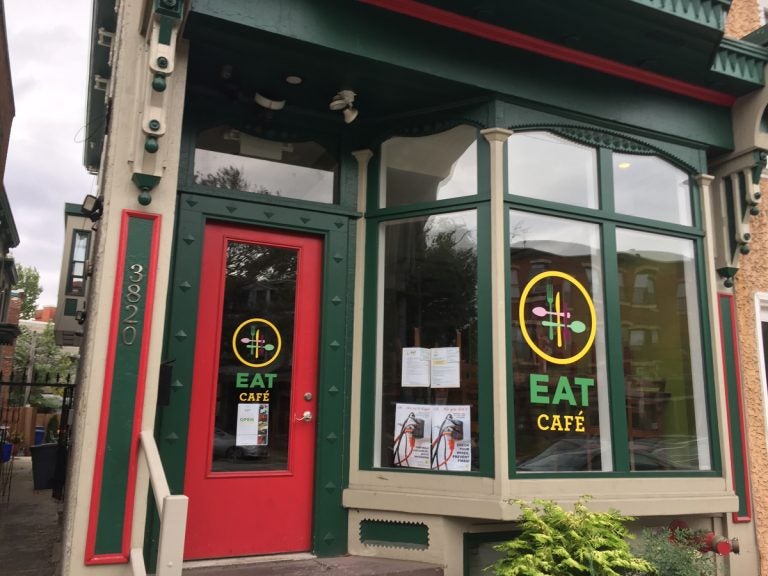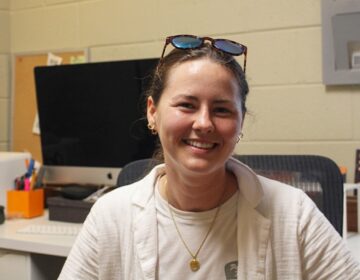Pay-what-you-can cafe in Philly needs more financial nourishment to continue serving needy
On any given night, 30-50 customers eat at the café, but not enough customers are paying more than the menu price, roughly $15 for a meal.

The EAT Café – short for everyone at the table – serves pay-what-you-can meals out of a colorful West Philadelphia rowhome space. (Aaron Moselle/WHYY)
Until last year, Terena Clements couldn’t afford to take her family out to a healthy sit-down dinner. Only fast-food restaurants – usually McDonald’s or Burger King – were on the menu.
“Maybe they might have the $1 menu or two for $5 specials,” said Clements, a single mother with two sons.
Their dinner options opened up when EAT Café – short for “Everyone at the Table” – starting serving pay-what-you-can meals out of a colorful West Philadelphia rowhome space.
Since then, Clements has traveled from North Philadelphia to the café roughly three times a week. It’s time with her family without breaking the bank.
“It’s a hand up, not a hand out,” she said.
Stories like Clements are the reason Marian Chilton, director of Drexel University’s Center of Hunger-Free Communities founded, EAT Café. It’s also the reason she’s wracking her brain for a way to keep the doors open.
On any given night, 30-50 customers eat at the café, but not enough customers are paying more than the menu price, roughly $15 for a meal. The extra money is needed to effectively subsidize the tabs of patrons who aren’t paying full price.
“Right now, we’re not sustainable,” said Chilton. “We’re still relying on grant funding, on donations.”
Industry experts have suggested Chilton retool the restaurant – keep the mission, but instead of emphasizing it, market the café like any other in the city. That way, diners who can afford to eat anywhere won’t see it as a way to help others but as just another restaurant.
But Chilton is reluctant to put the restaurant’s two-fold mission on the back burner. The café is a business, but it’s also a social experiment of sorts, one meant to aid the city’s neediest overcome two obstacles that Chilton said are often overlooked.
“When you can’t feed yourself and can’t feed your kids, you’re very likely to be depressed. It really cuts down to the core. That other issue is isolation. Really, families wouldn’t be going hungry if they didn’t feel so isolated,” said Chilton.
EAT Café has enough in the till to stay open into next summer. Valerie Erwin, one of the restaurant’s chefs, is among those who hope the one-of-a-kind eatery can serve meals past well past then.
“It’s very ideological, but it can work,” said Erwin.
WHYY is your source for fact-based, in-depth journalism and information. As a nonprofit organization, we rely on financial support from readers like you. Please give today.





